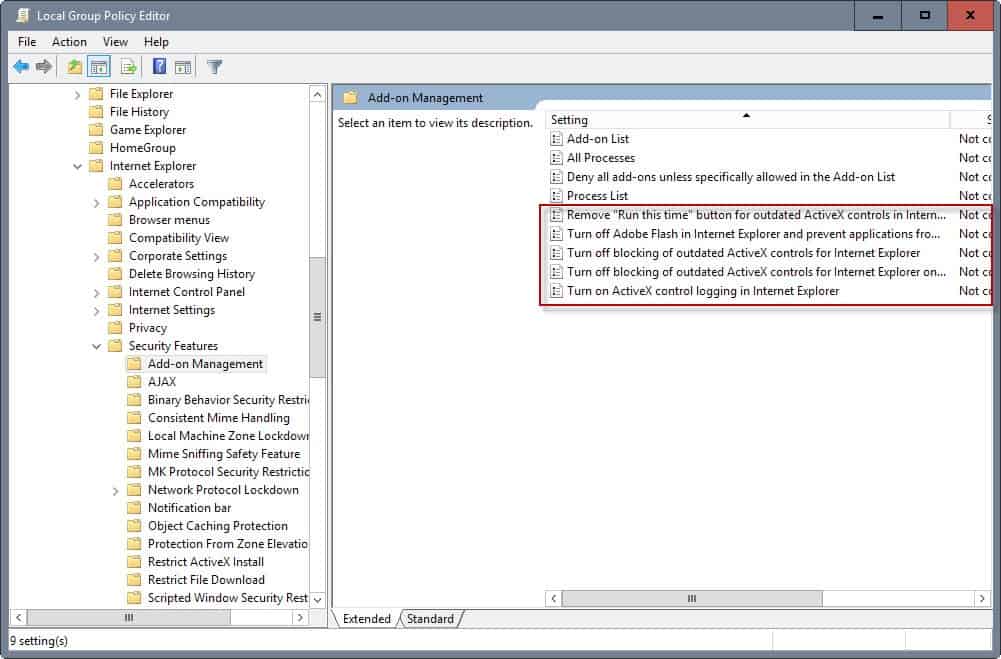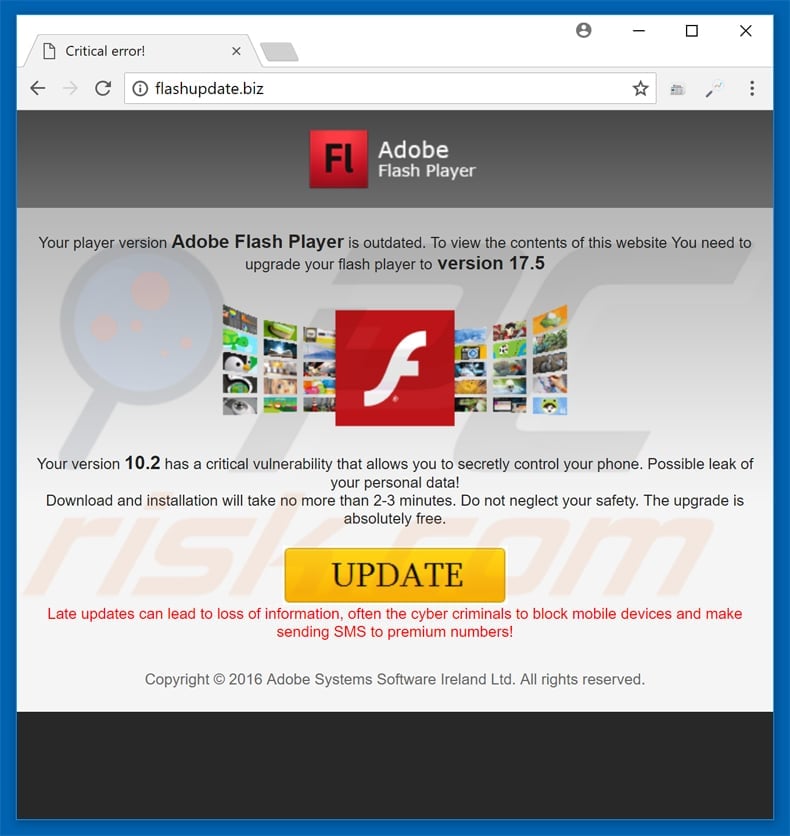
This article needs additional citations for. Unsourced material may be challenged and removed. Find sources: – ( October 2015) () () Netscape Plugin Application Programming Interface ( NPAPI) is a deprecated (see ) (API) that allows to be developed.
It was first developed for browsers, starting in 1995 with 2.0, but was subsequently adopted by other browsers. With the advent of many software vendors have removed support for this API for security reasons. In NPAPI architecture, a plugin declares (e.g. 'audio/mp3') that it can handle. When the browser encounters a content type it cannot handle natively, it loads the appropriate plugin, sets aside space within the browser context for the plugin to render and then streams data to it.
Tkp 45 202 110 2008 model. You might not realise it, but Flash comes with Chrome, needs to be installed in Firefox and needs to be installed in Internet Explorer. Create Flash-enabled applications which are ready to work even if the Flash Player ActiveX is not installed! Transparency is fully supported! Transparency is fully supported! Ability to play Flash Video (FLV) directly from memory.
The plugin is responsible for rendering the data. The plugin runs in-place within the page, as opposed to older browsers that had to launch an external application to handle unknown content types. NPAPI requires each plugin to implement and expose approximately 15 functions for initializing, creating, deleting and positioning plugin content. NPAPI also supports scripting, printing, full-screen plugins, windowless plugins and content streaming. Chamillionaire. Contents • • • • • • • • • • • • • • Scripting support [ ] Scripting is a feature allowing code in a web page to interact with the plugin. Various versions of Netscape and then supported this feature using different technologies, including LiveConnect, XPConnect, and NPRuntime.

LiveConnect [ ] LiveConnect is a feature of Web browsers that allows and JavaScript software to intercommunicate within a Web page. From the Java side it allows an applet to invoke the embedded scripts of a page or to access the built-in JavaScript environment, much as scripts can. Conversely, from the JavaScript side, it allows a script to invoke applet methods, or to access the Java runtime libraries, much as applets can. LiveConnect was used in to implement scriptability of NPAPI plugins. The -dependent implementation of LiveConnect was removed from the Mozilla source code tree in late June 2009 as part of the cleanup effort. It is no longer needed with the release of a redesigned from Sun Microsystems. However the old implementation was restored for Gecko 1.9.2, as Apple had yet to port the newer JRE over to Mac OS X.
Popular Posts

This article needs additional citations for. Unsourced material may be challenged and removed. Find sources: – ( October 2015) () () Netscape Plugin Application Programming Interface ( NPAPI) is a deprecated (see ) (API) that allows to be developed.
It was first developed for browsers, starting in 1995 with 2.0, but was subsequently adopted by other browsers. With the advent of many software vendors have removed support for this API for security reasons. In NPAPI architecture, a plugin declares (e.g. \'audio/mp3\') that it can handle. When the browser encounters a content type it cannot handle natively, it loads the appropriate plugin, sets aside space within the browser context for the plugin to render and then streams data to it.
Tkp 45 202 110 2008 model. You might not realise it, but Flash comes with Chrome, needs to be installed in Firefox and needs to be installed in Internet Explorer. Create Flash-enabled applications which are ready to work even if the Flash Player ActiveX is not installed! Transparency is fully supported! Transparency is fully supported! Ability to play Flash Video (FLV) directly from memory.
The plugin is responsible for rendering the data. The plugin runs in-place within the page, as opposed to older browsers that had to launch an external application to handle unknown content types. NPAPI requires each plugin to implement and expose approximately 15 functions for initializing, creating, deleting and positioning plugin content. NPAPI also supports scripting, printing, full-screen plugins, windowless plugins and content streaming. Chamillionaire. Contents • • • • • • • • • • • • • • Scripting support [ ] Scripting is a feature allowing code in a web page to interact with the plugin. Various versions of Netscape and then supported this feature using different technologies, including LiveConnect, XPConnect, and NPRuntime.

LiveConnect [ ] LiveConnect is a feature of Web browsers that allows and JavaScript software to intercommunicate within a Web page. From the Java side it allows an applet to invoke the embedded scripts of a page or to access the built-in JavaScript environment, much as scripts can. Conversely, from the JavaScript side, it allows a script to invoke applet methods, or to access the Java runtime libraries, much as applets can. LiveConnect was used in to implement scriptability of NPAPI plugins. The -dependent implementation of LiveConnect was removed from the Mozilla source code tree in late June 2009 as part of the cleanup effort. It is no longer needed with the release of a redesigned from Sun Microsystems. However the old implementation was restored for Gecko 1.9.2, as Apple had yet to port the newer JRE over to Mac OS X.
...'>Flash Player Ocx Control 90 Is Not Installed(08.03.2019)
This article needs additional citations for. Unsourced material may be challenged and removed. Find sources: – ( October 2015) () () Netscape Plugin Application Programming Interface ( NPAPI) is a deprecated (see ) (API) that allows to be developed.
It was first developed for browsers, starting in 1995 with 2.0, but was subsequently adopted by other browsers. With the advent of many software vendors have removed support for this API for security reasons. In NPAPI architecture, a plugin declares (e.g. \'audio/mp3\') that it can handle. When the browser encounters a content type it cannot handle natively, it loads the appropriate plugin, sets aside space within the browser context for the plugin to render and then streams data to it.
Tkp 45 202 110 2008 model. You might not realise it, but Flash comes with Chrome, needs to be installed in Firefox and needs to be installed in Internet Explorer. Create Flash-enabled applications which are ready to work even if the Flash Player ActiveX is not installed! Transparency is fully supported! Transparency is fully supported! Ability to play Flash Video (FLV) directly from memory.
The plugin is responsible for rendering the data. The plugin runs in-place within the page, as opposed to older browsers that had to launch an external application to handle unknown content types. NPAPI requires each plugin to implement and expose approximately 15 functions for initializing, creating, deleting and positioning plugin content. NPAPI also supports scripting, printing, full-screen plugins, windowless plugins and content streaming. Chamillionaire. Contents • • • • • • • • • • • • • • Scripting support [ ] Scripting is a feature allowing code in a web page to interact with the plugin. Various versions of Netscape and then supported this feature using different technologies, including LiveConnect, XPConnect, and NPRuntime.

LiveConnect [ ] LiveConnect is a feature of Web browsers that allows and JavaScript software to intercommunicate within a Web page. From the Java side it allows an applet to invoke the embedded scripts of a page or to access the built-in JavaScript environment, much as scripts can. Conversely, from the JavaScript side, it allows a script to invoke applet methods, or to access the Java runtime libraries, much as applets can. LiveConnect was used in to implement scriptability of NPAPI plugins. The -dependent implementation of LiveConnect was removed from the Mozilla source code tree in late June 2009 as part of the cleanup effort. It is no longer needed with the release of a redesigned from Sun Microsystems. However the old implementation was restored for Gecko 1.9.2, as Apple had yet to port the newer JRE over to Mac OS X.
...'>Flash Player Ocx Control 90 Is Not Installed(08.03.2019)